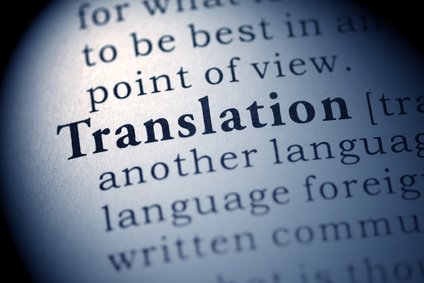 The biggest question surrounding the translation industry is the fact that it remains unregulated. Indeed, the status of ‘translator’ has yet to be determined, which means anyone can set up a ‘letter-box’ entity with zero knowledge of the industry.
The biggest question surrounding the translation industry is the fact that it remains unregulated. Indeed, the status of ‘translator’ has yet to be determined, which means anyone can set up a ‘letter-box’ entity with zero knowledge of the industry.
It wasn’t that long ago that some magazines pigeon-holed translation as a ‘casual work’ which any ‘bilingual’ person could do in their spare time.
How can you be sure you’re choosing a real translation professional?
Well, the golden rule is that the translator should only translate into their mother tongue and not into any other language they’ve learned – the translator needs to understand what they’re translating. Just because someone is bilingual and can use a dictionary and computer does not make them a translator. Professional translators have been trained to render meaning as opposed to translating words. They are specialised in specific fields.
To ensure the best quality, the translator must be proofread. Only a fresh set of eyes can easily tweak the text, correct errors and serious mistakes as well as take a step back from the source text to ensure the translation reads naturally in the target language.
Freelance translators often work alone, which means their work needs to be proofread – this is an additional service. Freelancers can also have other commitments. When you choose a freelance translator, you are effectively placing your trust in the person’s professional capacity, since the client is unable to objectively approve the quality of the translation in a foreign language.
Be that as it may, a good translator, who is available and professional, will ensure the quality and consistency of translations over the long term. The same can be said for professional translation companies, insofar as they’ll always make sure the same translators work on the same project, in the same field and for the same client.
Clients aren’t really in a position to judge the quality of translations or the skill of the translator in a language which they don’t fully understand. Similarly, they can’t approve the translator’s experience, qualifications and ability to manage multi-lingual projects and/or related services.

A professional translation company belonging to an association (in France there’s CNET, Chambre Nationale des Entreprises de Traductionwww.cnetfrance.org; and in Europe there’s EUATC, European Union of Associations of Translation Companies www.euatc.org) will have a variety of processes in place. These processes aim to assess the professionalism of its translators, and ensure recurrent translations and sizeable projects are monitored, knowledge, glossaries and translation memories are shared when teams are under pressure, and the work is proofread by a second translator. The inherent structure of translation companies means they can manage all types of specific requests (multi-lingual projects, adaptation for advertising, re-writing, DTP, audio transcription, subtitling, consistency when sizeable and urgent texts are split between teams, etc.). .
In order to join CNET in France, potential members must:
- Employ at least one qualified translator within the company
- Have liability insurance
- Have made a name for themselves over several years
- Have undergone an inspection to check and approve all of their processes.
When choosing the right service provider, it’s important to strike the right balance between expertise and good interpersonal skills.
It’s important to keep these two qualities in mind when deciding whether to work with a freelancer or a translation company.
For 34 years now, CG Traduction & Interprétation has been testing its translators with blind tests then in real time, proofreading each and everyone’s work without fail and striking up customer/translator partnerships to ensure consistency after having chosen the best translator(s) to deal with the specific fields of any given client. CG’s strength lies in its in-depth understanding of the market and its translators as well as its ability to maintain close relations with everyone involved in the translation process.


